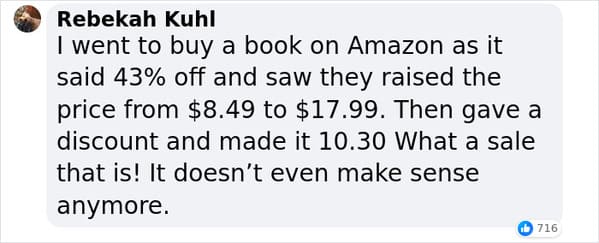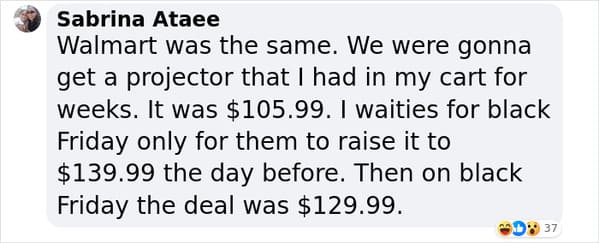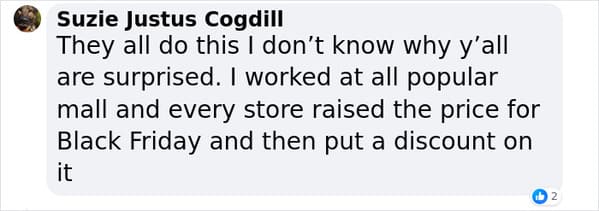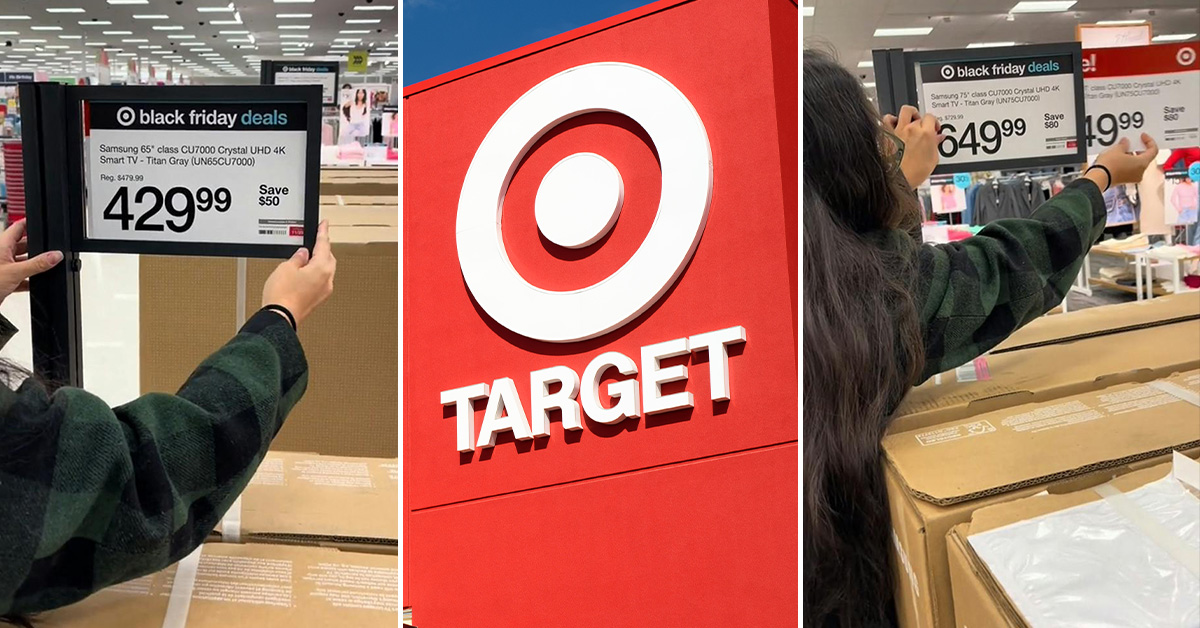Viral TikTok Sparks Outrage Over Target’s Alleged Fake Black Friday Prices
In a recent surge of skepticism on social media, Target is facing criticism for its Black Friday scam promotions. A TikTok trend, spearheaded by users like DeJay Downey, a Los Angeles-based DJ, exposes what appears to be deceptive pricing tactics. Downey’s TikTok video, which has amassed a staggering 38 million views, shows her revealing a dubious pricing strategy at Target.
The video captures Downey in a Target store, where she comes across a 75-inch Samsung TV marked at $649.99, ostensibly a Black Friday deal. The plot thickens as Downey slides the Black Friday tag out of its holder, only to unveil another tag underneath, also listing the TV at $649.99.
This revelation has sparked an online debate about the authenticity of Black Friday deals and raised questions about retail marketing practices.
TikTok users have exposed Target’s apparent Black Friday deals as misleading by revealing unchanged sticker prices for the same items across different days.
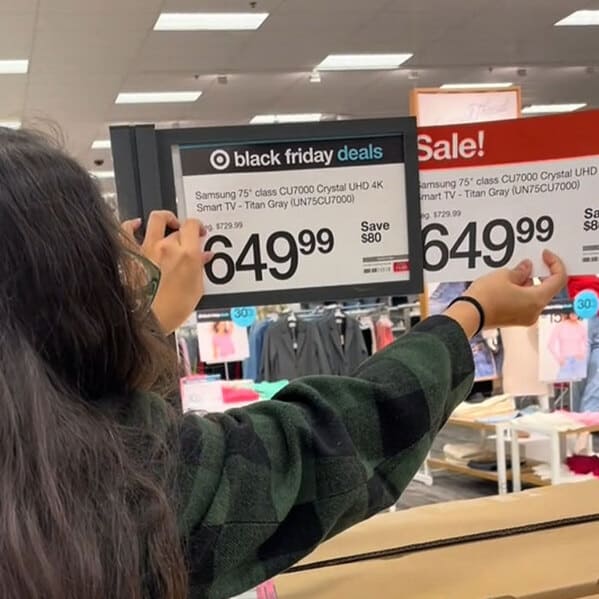
DeJay filmed a 65-inch TV displaying a Black Friday sale sign, priced at $429.99. However, another tag revealed the same price upon moving the Black Friday sign.
In the video, DeJay commented, “Oh, it’s the same,” while a man inquired, “Black Friday deal. That’s a deal?”
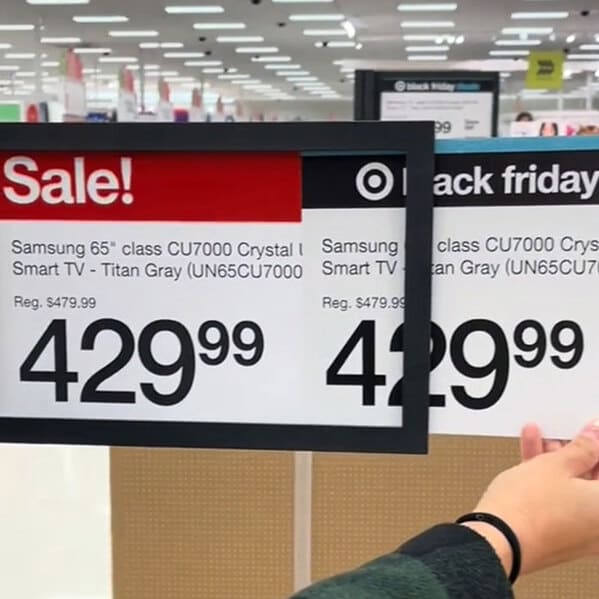
The two continued their search, eventually discovering another Samsung TV marked by a Black Friday promotion, listed at $329.99. They repeated their earlier action, pulling out the price tag to find, to their surprise, the same price of $329.99 displayed again.
The man commented, “Bro, that’s not a deal.”
Customers pulled out a Black Friday price label, only to uncover a sign showing the same price again: $329.99.
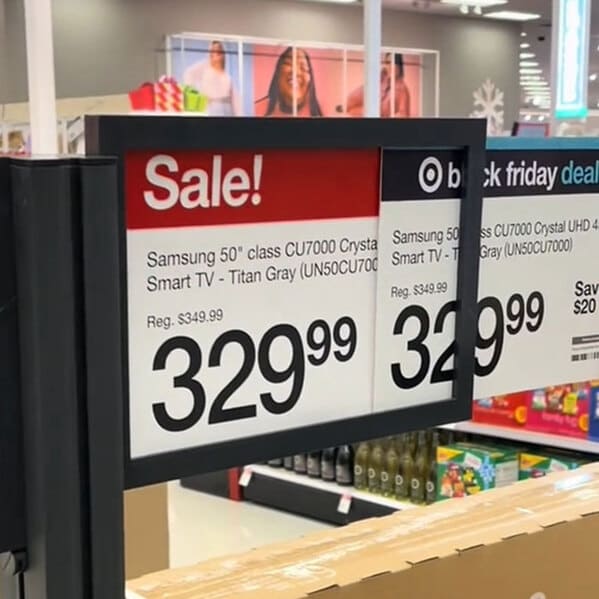
The TikToker reveals the price tag behind a TV’s Black Friday deal, remarking, “Oh, it’s the same.”

TikTokers quickly flocked to the comment section to express their astonishment.
One user stated, “This is why I stayed in bed relaxing!” Another added, “That’s why I didn’t go shopping anywhere. It’s been a scam for years!”
A different user remarked, “You are exposing their secret.” Echoing similar sentiments, yet another commenter said, “It’s to trick us into thinking it’s a bargain; don’t fall for it.”
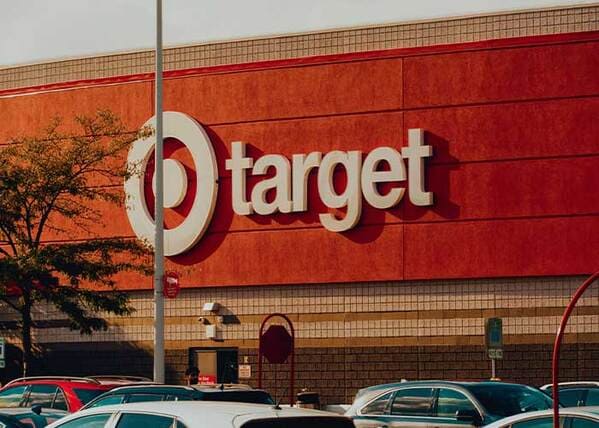
According to TMZ, another rogue TikTok user hit Target’s fashion aisles, uncovering the retail giant’s scam price hikes. The clip shows the TikToker peeling a sticker off a pair of pants, revealing a sneaky jump from $25 to $30.
And hold onto your wallets, because a bombshell analysis of past Black Friday deals dropped a truth bomb: a whopping 98% of these “bargains” were the same or even cheaper at other times of the year. Black Friday’s rep for unbeatable deals? Total myth, says CNBC.
Julie Ramhold, a DealNews.com pro, spills the tea to the network, saying stores dangle these deals to lure shoppers, but let’s face it – Black Friday’s glory days are a thing of the past.
The big question now: Will shoppers keep falling for these Black Friday scams, or is it time for a retail reality check?
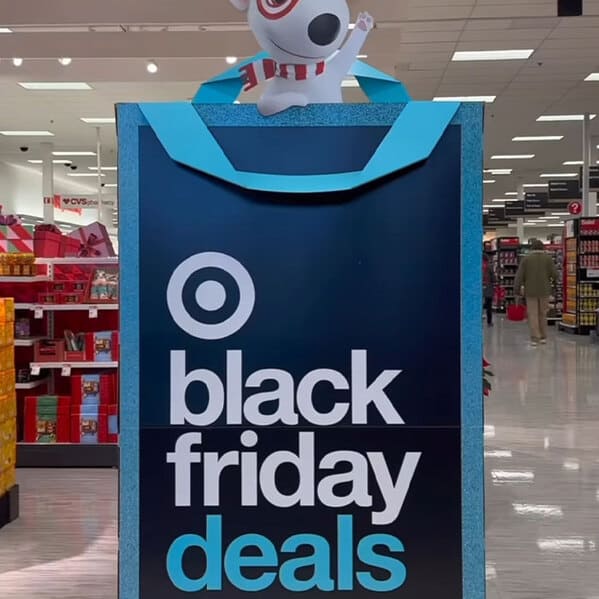
According to The Washington Post, those crazy markdowns you see at your favorite stores? Yeah, they might be a big ol’ retail trick. We’re talking about 30, 40, 50 percent off deals that are just price rollbacks. Prices are hiked up only to be slashed back to their original tags. It’s like a fashion merry-go-round.
And hold on, it gets better. Jie Zhang, a marketing professor from the University of Maryland, dished out the real tea to The Post. She calls these so-called ‘discounts’ as nothing but a Black Friday scam magic show – a ‘form of deceptive pricing.’
Next time you think you’re scoring big on those sales, remember it might just be a retailer’s sleight of hand.
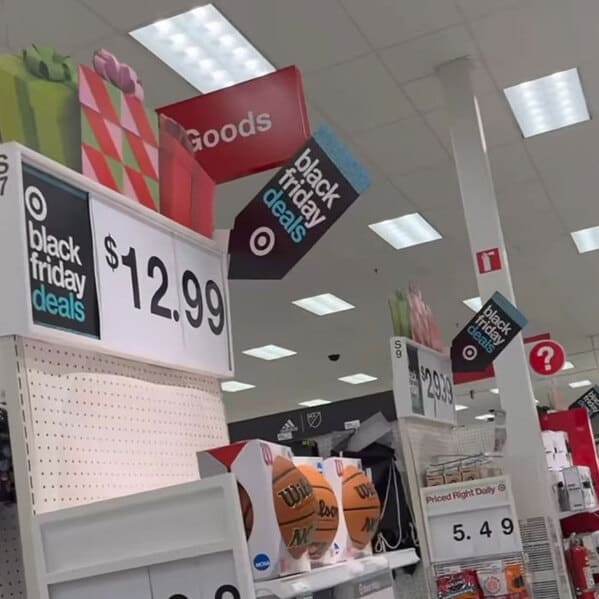
This tactic, designed to mislead consumers, involves artificially inflating the price of an item for a brief period before reducing it to its original cost while marketing it as a unique, limited-time offer. This approach exploits consumer psychology, leading them to believe they receive a significant discount.
Legal experts from The Impact Lawyers have raised alarms about the implications of such practices. They argue that these strategies mislead consumers and potentially violate consumer protection laws. Authorities are now considering stricter enforcement measures, including imposing fines and penalties on businesses found guilty of these deceptive practices.
This development signals a growing awareness and response to such underhanded retail tactics, which may ultimately lead to more transparent and ethical business practices.
Many commenters voiced their dissatisfaction with Black Friday offerings.





